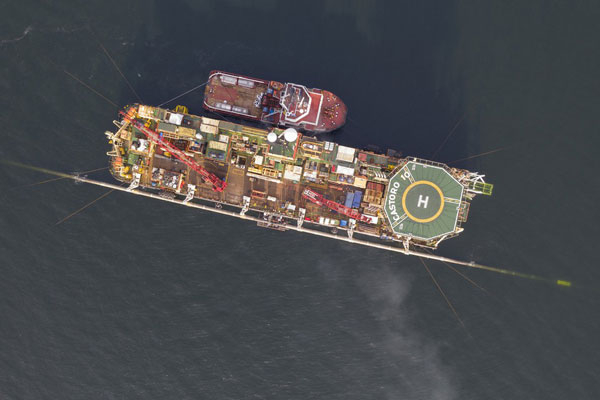Today, nobody can have any doubts that the project Nord Stream 2 is political and, even at the construction stage, it significantly affected the unity of the European Union countries and NATO partners.
However, in the autumn of 2021, mutual understanding on the European continent could be restored. This will be facilitated by the change of Germany’s political elite, who will find the courage to abandon the priority cooperation with the Russian Federation. It is expected that the new German government will recognise the erroneousness of previous decisions with regard to the Nord Stream-2 and will restore the Euro-Atlantic development vector through enhanced security cooperation with the United States, Central and Eastern Europe.
It is worth recalling, that the course to strengthen the Berlin-Moscow alliance actually began in 2005 and led to a disregard of the problems of Eastern Europe, deforming security mechanisms and violating the fundamental principles of international law by the Russian Federation. As a result, the Kremlin’s military aggression took place in Georgia (2008) and Ukraine (2014-till present). At this time, instead of restoring the balance in the EU and counteracting China’s undeclared expansion into European markets through Russia’s infrastructure projects, Berlin saw only danger in LNG supplies from the United States to the EU, including the supplies through Poland, Ukraine’s strategic partner.
By the way, according to the numerous opinion polls, the level of trust of the Ukrainian society to the United States and Poland is the highest, respectively, 28.3 per cent and 25.5 per cent of citizens approve of cooperation with these countries. More than 20 per cent of the population of Ukraine is optimistic about cooperation with Germany.
Taking into account public opinion and European integration aspirations, which are enshrined in the Constitution of Ukraine, official Kyiv will continue building strategic relations with the United States, the European Union and neighbouring countries.
The energy sector is one of the priority sectors of such cooperation. For instance, in terms of resources, Ukraine has created the most favourable conditions for international gas companies. For instance, in March 2021, the state company Naftogaz of Ukraine signed the Memorandum of understanding with the Polish company PGNiG regarding the implementation of several projects in the western regions of our country.
Significant progress in the relationship with the main European partner took place in 2020. The GTS operator of Ukraine and the Polish company GAZ-SYSTEM signed a new cooperation agreement and created a single virtual connection point, which came into force on July 1, 2020.
The integration of the gas markets of Ukraine and Poland could have taken place much earlier. However, there was a delay in the construction of the “UA-PL” interconnector. The project involved the construction of 100 kilometres of main gas pipelines and a gas metering station and aimed to connect gas storage facilities in the Lviv region with the Polish gas transmission system. According to the Razumkov Centre, the cost of the project is 180 million US dollars and the payback period is 5 years. For reference, the funds were provided in the financial plan of PJSC Ukrtransgaz in 2017, but due to unclear political circumstances, the project was stopped.
But maybe these days, when Ukraine and Qatar are making agreements on the supply of liquefied gas, the UA-PL interconnector will be built to receive natural gas from the terminal in Swinoujscie. The construction of this gas pipeline will increase the capacity of Ukrainian gas storage facilities and gas pipelines by 3 and 2 billion cubic metres per year, respectively.
In general, Ukraine has a favourable geographical location, has sufficient natural gas resources and operates a gas transmission system with sufficient technical capacity, which is also the most extensive network in Europe. All this creates the preconditions for the organisation of the hub on the basis of the national gas transport infrastructure. Such a trade zone can be created jointly with Poland.
The operation of the gas hub opens up new opportunities for strengthening the national economy and also will allow Ukraine’s European integration commitments to be completed through the integration of domestic infrastructure into the EU gas market; to open additional formats of economic cooperation with Turkey and Azerbaijan. However, the main political advantage of such a project will be the creation of an alternative to Russia’s trade space in the Black Sea region.
The latter aspect will provide Ukraine with an additional tool to influence the policy of the Russian Federation, in particular in matters of de-occupation of the Autonomous Republic of Crimea and certain areas in Donetsk and Luhansk regions.
Concluding on gas infrastructure, there are also serious prospects for cooperation between Ukraine and Eastern European countries in terms of investment in gas distribution networks and installation of hydrogen projects. For example, numerous experiments on the transportation of a gas-hydrogen mix are being carried out today in our country (Lviv and Zhytomyr regions). This interaction correlates with the announced European Green Deal.
Referring to achieving climate neutrality, it is worth recalling the Energy Bridge project, which provides for the supply of electricity from Ukraine’s nuclear power plants to the Polish market. In order to implement that, it is necessary to attract 300 million US dollars and restore the 750 kilovolts (kV) electric line running from Khmelnytskyi NPP to the Polish substation Rzeszow.
In addition to Polish consumers, electricity from Ukraine can be supplied in transit to the Baltic States. The Ukrainian government decided on this project in June 2015, and in this case, the decision was blocked by the unclear political forces. Such a pattern can testify only one thing, the Russian Federation is waging a hybrid war against Ukraine, in particular, on the energy front.
As we can see, energy and defence are closely linked. It is possible to increase the level of security on the European continent by means of the following 5 steps:
- Reducing the role of bilateral German-Russian relations and strengthening the importance of the EU in making strategic foreign policy decisions, as well as the refusal to complete the construction of Nord Stream-2;
- Granting Ukraine the status of a permanent NATO member. Formation of a consolidated and strong position of the EU and NATO in relation to Russia on the restoration of international law and principles of European security in the issue of returning Crimea and the part of the occupied Donbas to the legal field of Ukraine;
- Ukraine’s accession to the EU, but not later than 2025;
- Deployment of the Ukrainian gas hub, synchronisation of the Ukrainian power system with ENTSO-E;
- Involvement of Ukraine in the European Green Deal on equal terms with EU countries, in particular, in order to obtain investments in the development of solar, wind energy, energy projects from biofuels, green hydrogen (taking into account the use of the Ukrainian GTS network for its transportation to Europe); implementation of Ukraine-EU investment programs in the fields of energy-saving and electric mobility.
Thus, to stop the Nord Stream 2 project is to restore the unity of the European Union and preserve the territorial integrity of democratic countries.
Source:





